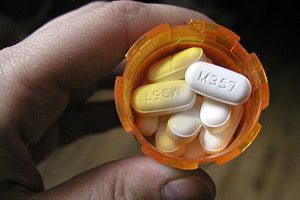
In a policy reversal, federal regulators are recommending more stringent control over hydrocodone-based painkillers, such as Vicodin and Lortab. The painkiller medications are considered the most popular prescription drugs in the United States and are at the center of a controversy that accuses the U.S. Food and Drug Administration (FDA) of being too cozy with […]
 In a policy reversal, federal regulators are recommending more stringent control over hydrocodone-based painkillers, such as Vicodin and Lortab.
In a policy reversal, federal regulators are recommending more stringent control over hydrocodone-based painkillers, such as Vicodin and Lortab.
The painkiller medications are considered the most popular prescription drugs in the United States and are at the center of a controversy that accuses the U.S. Food and Drug Administration (FDA) of being too cozy with drug manufacturers. The stricter regulations are being implemented to limit the abuse of painkillers that has become rampant, according to Bloomberg.com.
The agency agreed to implement the recommendation by early December, which would re-classify the drugs as a Schedule II substance, said Janet Woodcock, director of the FDA’s Center for Drug Evaluation and Research, in a statement. Today, hydrocodone combinations are classified as Schedule III, which is the third-highest level on the five-stage scale. The scale, noted Bloomberg.com, considers a drug’s addiction potential.
Recently, Senator Joe Manchin III asked the FDA to conduct a probe over so-called “pay to play” allegations concerning one of the agency’s advisory panels. The request followed news that pharmaceutical firms paid to attend meetings with a scientific panel that advised the FDA on painkillers. According to the organizer’s emails, key drug maker funding was as high as $25,000 per meeting, The Washington Post reported.
Senator Manchin (Democrat-West Virginia) wrote to FDA Commissioner Margaret Hamburg asking the agency to provide his office with a number of documents, including the names of the firms that paid to attend panel meetings, how much they paid, and the emails that passed between meeting organizers and FDA officials, The Washington Post reported. The senator was seeking a more stringent hydrocodone limit—hydrocodone is known for its addictive properties and easy availability.
“It is a shame that some of these companies were able to influence the FDA’s decision with a $25,000 contribution, while West Virginian families are destroyed by the addiction these pills cause,” Manchin said in a statement. The senator is also “calling for a full investigation to see how far this goes. If these allegations are true, they explain why it has taken the FDA almost a year to reach a decision to reschedule hydrocodone.”
Two academics scheduled the meetings to provide the FDA with advice on how to measure evidence from clinical trials, according to The Washington Post; an agency official described the group as “an essential collaborative effort.” Consumer advocates have disagreed, saying that the FDA has become overly comfy with drug makers hoping to be part of the $9 billion United States pain killer market. Meanwhile, two officials later secured positions as consultants to the pharmaceutical industry.
In 2011, about 131 million hydrocodone products were dispensed, which is more than two-fold that of oxycodone pills, which have stricter restrictions, according to an FDA report released earlier this year, wrote Bloomberg.com. In fact, the Drug Enforcement Administration (DEA) has been asking the agency for the past 10 years to reclassify oxycodone drugs from Schedule III to the stricter Schedule II classification.
“While the value of and access to these drugs has been a consistent source of public debate, the FDA has been challenged with determining how to balance the need to ensure continued access to those patients who rely on continuous pain relief while addressing the ongoing concerns about abuse and misuse,” Woodcock said.
“Each day that passes means rising abuse, and even death, at the hands of hydrocodone-based drugs,” U.S. Senator Chuck Schumer (New York-Democrat), according to Bloomberg.com.


